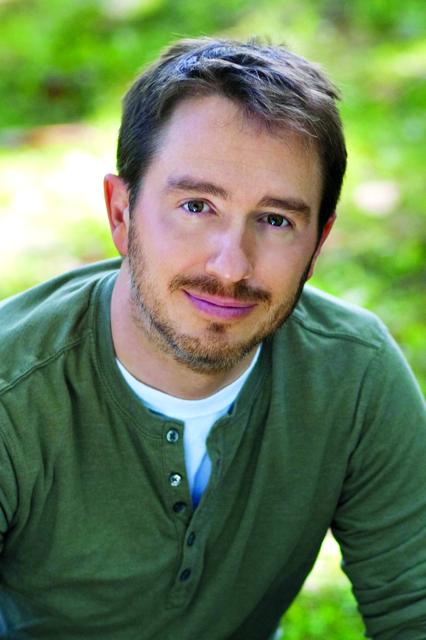There’s a passage in in Wiley Cash’s debut novel, A Land More Kind Than Home, where Madison County sheriff Clem Barefield says, “Most people up here claim they’ve got Irish or Scottish or some kind of blood in them, and I think that’s probably true, especially if you listen to all the folks who’ll drive up here from the universities to tell you all about the culture they say’s disappearing.” Which is funny, especially if you’ve lived in Western North Carolina for a while, or have watched a PBS special on local accents, or have tried to figure out the correct pronunciation of Leicester.
But the passage — and the whole book (equal parts character sketch, Southern fiction and thriller) — is less about cultural irony and more about homesickness.
“I was living in Asheville right before I moved to Louisiana. When I got down there, I was desperately homesick,” says Cash, who grew up in North Carolina but went to graduate school in Lafayette. He discovered that by writing about the familiar landscape, he could “kind of go back there.”
It was Cash’s fiction professor, Ernest Gaines, who suggested that Cash parlay his homesickness into prose. “He said, ‘You can go back if you recreate it. If you can imagine it, it’s just as real as being there,’ and he was right,” says Cash.
Land was begun in 2004, as a short story told from the perspective of Ben Hall, the father of an autistic boy who perishes during a church service. The completed novel has three narrators — elderly midwife Adelaide Lyle, 9-year-old Jess Hall (the brother of the dead boy) and Clem, the sheriff. Ben didn’t make the cut because Cash says he had “trouble with the immediacy of losing a child. I couldn’t put words to that.”
What he could put words to was the shrouded-in-secrecy tradition of an Appalachian snake-handling church. It’s within the confines of that spiritual community, run by a zealous preacher with a troubled past (he’s badly burned from a meth lab explosion, but tells his parishioners that “the hand of God Almighty has come down and set his body afire to purify him from the sins of the world”) that Stump, the autistic boy, is suffocated while the believers attempt to heal him.
Cash says that the idea was inspired by a news story about an autistic boy in Chicago who was smothered during an African-American faith-healing service. Cash wanted to use that in his fiction, but he didn’t feel comfortable setting the tale in Chicago, an unfamiliar place to him. Instead, he called to mind the Appalachian scenery he knew so well. As for the snake-handling church, The Holy Ghost People (a documentary about a Pentecostal community) and Cash’s own Southern Baptist upbringing helped.
“You seek to understand what compels someone to do that, and in seeking to understand, you see the things in yourself that don’t make sense to other people,” he says. “They’re picking up snakes and drinking poison. But I’m watching reality TV and getting the same charge.”
In truth, Land doesn’t explain (or even attempt to explain) the snake-handling tradition. That provoking detail serves to propel the unfolding drama. But the heart of the book is its characters’ unique voices and back stories, from Adelaide’s foray into Asheville as a young woman looking for work in the tobacco warehouses, to Jess’s adventures hunting salamanders in a mountain creek.
Cash says that his next book, already in the works, is set in Gastonia where he grew up. “I love putting places that I know on the page and thinking long and hard about, ‘What did that restaurant smell like? How hot was that parking lot in summer?’” He says that writers who are unmoored don’t appeal to him; he wants to follow in the tradition of Thomas Wolfe and (more recently) Ron Rash — writers who conjure a distinct sense of place; writers for whom place is as much of a character as the people in their novels.
“When I went to grad school to become a writer, I had no idea what kind of a writer I was,” Cash says. Until he started writing about N.C. — the very place he says he’s still trying to get back to. “I can’t imagine caring about another place as much,” he says.
— Alli Marshall can be reached at amarshall@mountainx.com.
who: Wiley Cash
what: Reading and booksigning of A Land More Kind Than Home
where: Malaprop’s
when: Saturday, May 19 (4 p.m., free. https://www.malaprops.com)




Before you comment
The comments section is here to provide a platform for civil dialogue on the issues we face together as a local community. Xpress is committed to offering this platform for all voices, but when the tone of the discussion gets nasty or strays off topic, we believe many people choose not to participate. Xpress editors are determined to moderate comments to ensure a constructive interchange is maintained. All comments judged not to be in keeping with the spirit of civil discourse will be removed and repeat violators will be banned. See here for our terms of service. Thank you for being part of this effort to promote respectful discussion.